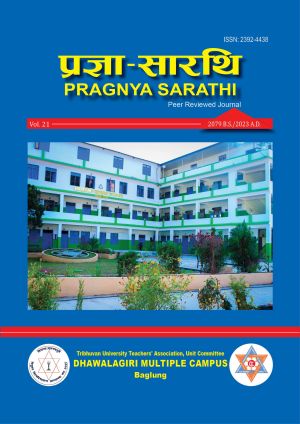Local-Self Governance in Federal Nepal: A Critical Review
DOI:
https://doi.org/10.3126/ps.v21i1.59462Keywords:
Accountability, autonomy, democracy, federal structure, local governmentAbstract
This paper sheds light on local self-governance in Nepal, including its structure, components, practice, prospects, and limitations critically, while raising questions such as: what were the reasons for transforming the unitary system of governance into the federal structure, what are the principles of local government, and how does it work under the federal framework? It is a descriptive and analytical paper that best uses data from secondary sources and observing functions of local governments. The study's theoretical foundation is based on good governance principles, aimed at improving the quality of service delivery by the local government in Nepal. The elected representatives of the local government make plans and policies for public welfare, utilizing the power conferred on them by the law. By evaluating the historical landscapes, practices, and outcomes of local self-governance, it has been concluded that the quality of the government is the result of a continuous interface among system capabilities, public response, and accountability.
Downloads
Downloads
Published
How to Cite
Issue
Section
License
Copyright (c) 2023 Dilli Raj Gautam

This work is licensed under a Creative Commons Attribution-NonCommercial 4.0 International License.
This license enables reusers to distribute, remix, adapt, and build upon the material in any medium or format for noncommercial purposes only, and only so long as attribution is given to the creator.




